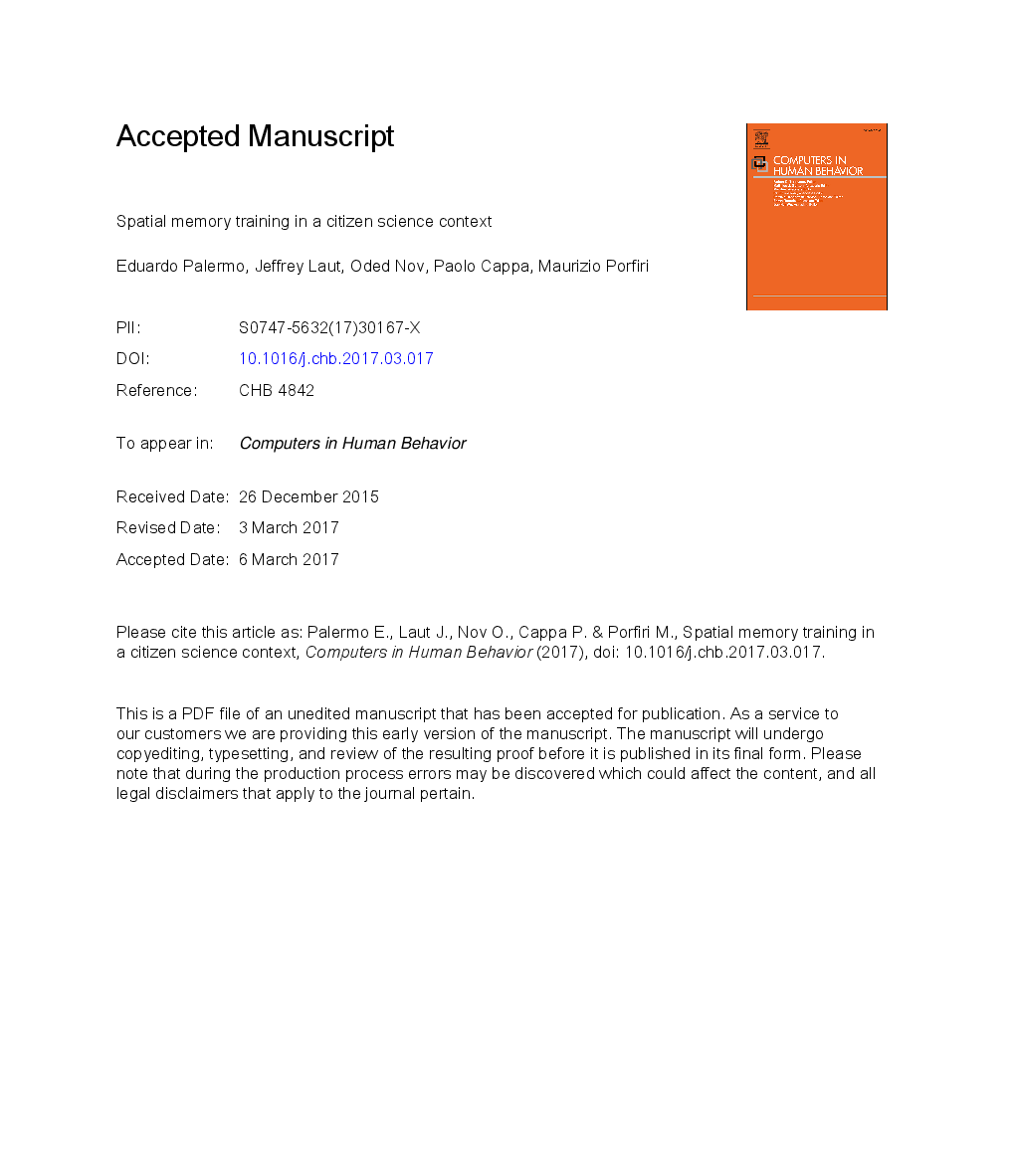ترجمه فارسی عنوان مقاله
آموزش حافظه فضایی در زمینه علوم شهروندی
عنوان انگلیسی
Spatial memory training in a citizen science context
| کد مقاله | سال انتشار | تعداد صفحات مقاله انگلیسی |
|---|---|---|
| 122073 | 2017 | 14 صفحه PDF |
منبع

Publisher : Elsevier - Science Direct (الزویر - ساینس دایرکت)
Journal : Computers in Human Behavior, Volume 73, August 2017, Pages 38-46
ترجمه کلمات کلیدی
ارزیابی دولت مؤثر، علم شهروند سندرم الکل جنین، ناتوانی ذهنی، آموزش حافظه فضایی،
کلمات کلیدی انگلیسی
Affective state evaluation; Citizen science; Fetal alcohol syndrome; Intellectual disability; Spatial memory training;
ترجمه چکیده
کمبود حافظه یکی از اثرات اولیه ناتوانی فکری است و تأثیر زیادی بر زندگی روزمره دارد. در اینجا، ما یک سیستم آموزش جدید حافظه فضایی را بر اساس محیط مجازی دانش شهری پیشنهاد می کنیم که در آن کاربران کاربران از یک ربات آبزی در یک کانال آلودگی حرکت می کنند و اشیاء خاصی را از تصاویر گرفته شده توسط ربات می شناسند. دستگاه الکتروانسفالوگرافی کم هزینه قابل حمل برای افزایش میزان تعامل و فعال کردن زمان واقعی برآورد وضعیت عاطفی کاربر استفاده می شود. ما گروهی از 60 فرد بالغ سالم را برای ارزیابی علاقه مندی کاربران، عملکرد حافظه و متغیرهای عاطفی به عنوان تابع مودال اندیشی (فعال و غیرفعال) و رابط (یک موس کامپیوتر سنتی و هدست) ارزیابی کردیم. با وجود ارائه سطح بالایی از مشکلات، هدست بیش از یک کنترل موش سنتی توسط کاربران ترجیح داده می شود، که عملکرد حافظه فضایی آن با روش های ناوبری یا رابط کاربری متفاوت نیست. ناوبری فعال، منجر به سطح بالایی از تعامل، که توسط هدست اندازه گیری می شود. این یافته ها نشان می دهد امکان یک فرم جدید، موثر و سرگرم کننده توانبخشی فکری با تاثیر بالقوه بر سندرم الکل جنین.

